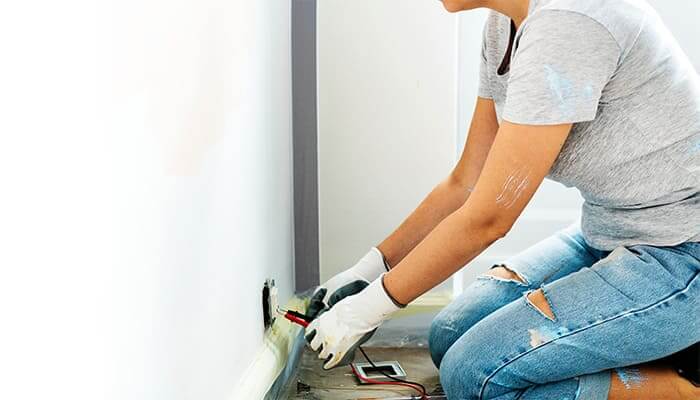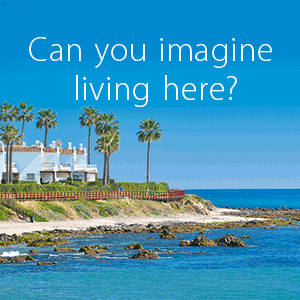Buying a flat versus a house
In today’s post I look at the age-old conundrum facing thousands of property buyers every year, which is whether to buy a flat or a house with the hard-earned money you’ve saved.
For some, of course, this is a no-brainer. If you have a modest budget or you are a couple looking to purchase a holiday home for sporadic visits to the Costa del Sol, the chances are you will be leaning towards buying a flat.
Conversely, if you have a large family and pets and you plan to live in your property all-year round, you will property require some outside space and a private garden. In this instance, buying an apartment becomes less feasible and a semi-detached / detached house is the order of the day.
But what about other factors? Take a look at the following list of pros and cons related to both property types, which I hope will be a useful point of reference for those weighing up whether to buy a flat or a house in Spain. There's no winner or loser here, but it's certainly food for thought...

Buying an apartment
Pros:
- Price – At the top of the list has to the economic benefit of acquiring a flat versus a house. Although there are some awe-inspiring apartments and palatial penthouses out there, as a general rule you’ll pay less for a flat.
To give you an idea of what’s out there, check out a range of Costa del Sol property for sale. - Facilities – Apartment complexes are being built with an increasing number and variety of communal facilities, which you wouldn’t have if you lived in a house. Although detached homeowners might have a swimming pool in their garden, many urbanisations have (free) access to a gym, spa, children’s play areas and tennis and pádel courts, to name but a few.
- Better security – Unless you install an impenetrable, Fort Knox-style security system in the grounds of your villa, the average apartment complex tends to be better protected than a stand-alone house. This is especially true if you live in a gated urbanisation that has a round-the-clock security team and barriers on entry and exit.
- Community feel – Living in a flat necessarily means you’ll have lots of neighbours; whether they’re year-round occupants, visitors a few times a year or holidaymakers renting the place out. Arranging to meet other residents down by the pool or crossing paths with the guy who lives diagonally above you when you’re taking the rubbish out inevitably add to your feeling of inclusion and belonging in your new environment… especially if you’re a newbie on the Coast.

Cons:
- Nosey neighbours – The other side of the “community” coin is having to put up with residents who rub you up the wrong way. Someone parking their car in your garage space, a neighbour with a penchant for late night parties, a yapping dog next-door or a group of kids screaming during siesta time are all things that can annoy even the most mild-mannered flat owner.
- Community fees – As an owner of a flat within a residential community, you’ll have to pay a monthly fee called “gastos de la comunidad” in Spanish. While not a bad thing in and of itself – the money collected goes towards improvements to the complex, maintenance, gardening and generally sprucing the place up – there is no fixed cost and is dependent upon a number of factors. The more lifts, communal facilities, pools, gardens and staff your urbanisation has, the more each property owner will have to pay. If the complex is half empty, the owners who do have flats there will, unfortunately, have to pick up the slack and put in a bit more per head. This is definitely something you should ask your agent about as part of your Buyer Journey.
VIVA’s Exclusive Developments
Residencial Infinity (now 80% sold out!) in Estepona and recently launched Delta Mar Suites in Riviera del Sol are perfect examples of this kind of in-demand real estate.

Buying a house
Pros:
- Land value – As an owner of the freehold, you have land value as well as the value of the bricks and mortar and interior space, as is the case with buying a flat.
- More freedom and privacy – If you’re the kind of person who doesn’t like to be overlooked by the flats opposite or your upstairs neighbour's underwear falling off their washing line and onto your terrace every evening, finding a peaceful getaway will make you feel more at home. If you love entertaining, you’ll doubtless prefer the extra outdoor space a house has, as well as the privacy aspect… plus you don’t have to live in fear of smoking out your neighbours every time you have a barbecue!
- Renovation – Making structural changes to your detached home is significantly easier to do than in a flat. Put simply, you own all exterior walls as well as the interior space, so – barring large-scale extensions requiring planning permission from the local town hall (”Ayuntamiento” in Spanish) – you have greater flexibility to knock stuff through or add to your property.

Cons:
- Additional maintenance costs – Naturally, a larger property requires higher costs to keep it going. Water, electricity, council tax and rubbish removal fee (“IBI” in Spanish )… even down to mowing the lawns and the upkeep of a pool.
- Distance from town centre – For some, this is arguably a pro; especially if you seek tranquillity and nothing but the sound of crickets chirping at night. However, if you want to be walking distance from the beach and all amenities and value not having to take the car out to go anywhere, you’ll find an apartment is probably more convenient.
 en
en




 Vlaams-Nederlands
Vlaams-Nederlands
8 Comments
Leave a Comment
DISCLAIMER
The opinions and comments expressed by contributors to this Blog are theirs alone and do not necessarily reflect the views of VIVA Homes Under the Sun Ltd, any of its associated companies, or employees; nor is VIVA to be held responsible or accountable for the accuracy of any of the information supplied.
JanaFebruary 9, 2021 at 11:19 pm
Hi Simon, Thank you for very informative summary on buying flats and houses. I would like to move to Costa del Sol to live there all year round. Based on your experience, what is better to buy for a permanent living there, a flat or a house? I do worry about security of living in a house after seeing all the Spanish houses with bars on windows and doors. Are house burglaries such a common issue that people had to install the bars? I speak quite good Spanish so would not mind living in a Spanish village little further inland among the Spanish. Where are safe places to live at a reasonable price you would recommend? I am torn between buying a flat to feel more secure (but I worry about constant noise of holidaymakers renting flats around) and buying a house. What would you advise for a long term living in the area of Costa del Sol. Thank you for your opinion. Jana
Victoria AtkinsFebruary 11, 2021 at 9:08 am
UrsSeptember 3, 2020 at 3:30 pm
Hi Simon, Very helpful info - thank you. Do you have any views or info on buying a duplex in costa Blanca? Seem to be halfway between house and flat and am wondering if it could have problems of both without sufficient benefits. Grateful for any insights you may have.
yourVIVA teamSeptember 8, 2020 at 9:40 am
mark saundersOctober 7, 2019 at 4:12 pm
keep looking at villas verses apartments.i think the biggest possible headache with villa/house is security unless you are living in Spain,also upkeep of pool etc but on other hand have heard some horror stories of apartment owners having to pick up the shortfall of other owners not paying communal fees and not having a voice in votes if majority of owners are spanish. Not sure there is a answer but perhaps slightly easier if on a complex where management team control all aspects of maintenance such as a golf complex.
SimonOctober 7, 2019 at 5:11 pm
John ReidyAugust 24, 2019 at 8:11 am
I would like to no more about planning procedure As I have seen a finca in a great location but it is to Small and needs extending,it is based in alhaurin el grande
SimonAugust 26, 2019 at 12:33 pm
Have you got something to say?